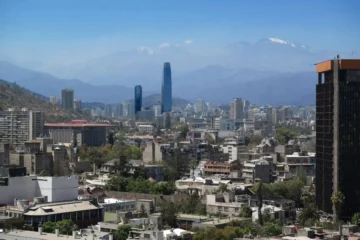Turkey is a major regional employment hub that attracts professionals across construction, energy, education, technology, and services. Many foreign workers arrive on employer-sponsored work permits and then ask whether that temporary status can become a permanent right to live and work.
The short answer is yes, but the route is selective, multi-year, and depends on which residence track the worker follows; this guide explains the practical steps, timelines, and realistic prospects for turning a Turkish work visa into long-term residency or an equivalent status.
Key Takeaways
How Turkey’s work permit and residence system fits together
Non-EEA nationals who want to work in Turkey must obtain a work permit, which is normally applied for by the hiring employer and issued by the Ministry of Labour and Social Security. The work permit functions as both an employment authorisation and a residence permit while it is valid; employers submit the core application online, and the foreign national completes consular formalities before arrival.
Begin Your Path to Turkish Residency Today!
We connect you with trusted immigration experts who simplify the entire process — from paperwork to approval.
This employer-led model means that legal stay is closely linked to active employment, so maintaining continuous, documented work is essential for any long-term plan.
Main work visa categories that matter for long-term residence
The most relevant categories for skilled workers are the standard work permit issued for employment, the specialised permits for sectors with labour shortages, and the Turquoise Card, which targets highly qualified professionals and investors. The standard work permit is typically renewable and tied to a specific employer; it gives a stable, but ultimately temporary, legal basis.
Also Read: How to Get Permanent Residency in Portugal?
The Turquoise Card is distinct; it is intended to grant indefinite work and residence rights to foreigners who meet strict criteria for education, income, investment, or extraordinary contribution, and it has a provisional transition period in its early years. Choosing the right initial permit influences future options, especially when aiming for long-term status.
Who is eligible for a Turkish work permit
Eligibility requires a valid job offer from a Turkish employer, submission of supporting documents including academic credentials, a clean criminal record, and local medical checks where required. Employers handle most of the formalities; they register the vacancy and apply to the Ministry, and the process usually includes labour and social security checks.
Highly skilled professionals, managers, and those with sectoral expertise find it easier to secure employer sponsorship, while workers in sectors with official shortages may benefit from expedited procedures. Keeping payroll records, tax declarations, and social security contributions up to date is essential to demonstrate continuous employment later.

Paths from a Turkish work visa to long-term residence
There are two realistic long-term outcomes for foreign workers in Turkey. The first is the Long-Term Residence Permit, available to foreigners who have lived in Turkey legally and continuously for at least eight years on valid short-term or other residence permits; applicants must also show financial self-sufficiency and health insurance.
This permit grants indefinite residence, and it is the most direct equivalent to permanent residency for long-stay expatriates. The second pathway is the Turquoise Card, which can provide indefinite work and residence rights to qualified applicants under a merit and points regime, and it is designed to retain high-value talent and investors. Both paths require careful, uninterrupted documentation of residence and legal status during the qualifying period.
Practical application steps and required documents
For a work permit, the employer typically initiates the process through the online system, submits employment contracts and company documentation, and follows up with the Ministry; the foreign national completes the consular visa stage if applying from abroad, then registers with local immigration after arrival. For long-term residence, applicants submit a package to the Directorate General of Migration Management showing continuous residence history, employment and income evidence, proof of housing, health insurance, and clean criminal records.
Also Read: How to Get Permanent Residency in the Philippines?
Turquoise Card applicants use a separate procedure that often requires higher thresholds for income, education, or investment, and the card is initially issued with a provisional review period. Keeping meticulous originals and certified translations is critical because authorities verify continuity of stay and financial independence.
Typical timeframes and continuity rules
Short-term work permits are usually issued for one to two years and can be renewed, provided the employment relationship continues. The long-term residence route normally requires eight consecutive years of legal stay on qualifying residence permits; interruptions or gaps in legal permission, extended absences, or lapses in payroll and tax records can reset the clock. Turquoise Card processing times vary and include a three-year provisional monitoring period after the initial grant.
Applicants should plan for months of administrative processing for both long-term residence and specialised programmes, and they should avoid permit lapses at all costs.
Common mistakes and practical risks
Workers often underestimate how strictly Turkish authorities check continuous residence, social security contributions, and tax compliance. Common errors include changing employers without promptly updating permits, failing to register address changes with local authorities, and letting health insurance lapse.
Also Read: How to Get Permanent Residency in Austria?
Another pitfall is assuming that time spent under short visitor or tourist status counts toward the long-term residence requirement; it does not. For those aiming at the Turquoise Card, the risk is insufficient documentation of exceptional contribution or investment; careful preparation and legal advice are advisable.
Benefits of long-term residence or Turquoise Card
A Long-Term Residence Permit removes the need for frequent permit renewals, it secures the right to live in Turkey indefinitely, and makes family reunification and property transactions simpler.
The Turquoise Card goes further by offering indefinite work rights without employer sponsorship, and in practice, it affords greater mobility and investment freedom for highly qualified holders. Both statuses significantly reduce bureaucratic friction for professionals who intend to settle, work, and invest in Turkey long-term.
Conclusion: Is the work visa route practical for long-term settlement?
Yes, a Turkish work visa can lead to permanent-type residence, but it is a long game. Most workers will find the eight-year long-term residence track realistic only if they maintain continuous legal status, steady employment, and full compliance with tax and social security rules. Highly qualified individuals who meet the Turquoise Card criteria can reach indefinite residence more quickly, but the eligibility bar is higher.
For professionals committed to building careers in Turkey, careful record keeping, prudent planning, and occasional legal advice make the transition from employer-sponsored work permit to long-term residency achievable.
Reference: https://residencepermitturkey.com/





